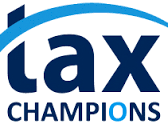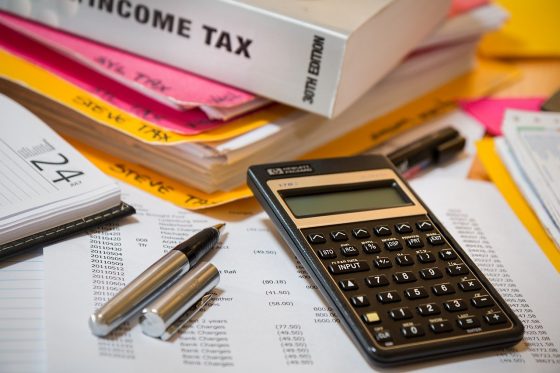Income Tax on Covid-19 Relief
As the pandemic swept the nation, many Americans were worried about putting food on the table. When the coronavirus forced people out of their jobs, it felt as if the stimulus money came just in time. We weren’t thinking about paying income tax on covid-19 relief payments back then.
Now, businesses are opening back up and we’re slowly starting to move about our lives again. Who knew a little bit of normalcy would bring so much relief! However, with reality setting in, you may start to wonder if you’ll owe taxes on your stimulus payments.
Tax Foundation points out that the relief package is the “largest economic relief bill in U.S. history.” In fact, it puts $2.2 trillion of cash and other aid into the hands of people and businesses impacted by the virus.
The Coronavirus Aid, Relief, and Economic Security (CARES) Act includes:
- Penalty waiver on retirement account withdrawals
- Protections for borrowers who have defaulted on student loans
- Eviction relief for renters
- Mortgage loan leniency
- Paid Sick Leave
- Paid Family Leave
- Boost in unemployment insurance benefits*
- One-time cash payment per taxpayer*
Will I Owe Income Tax on Covid-19 Relief Payments*?
Taxpayers highly anticipated the cash aid in the CARES Act. The Act includes a law that increases unemployment benefits. It’s for people who lost all or part of their income due to the pandemic.
It increases one’s standard benefit by $600 per week, which the federal government funds. It also provides for an additional 13 weeks of benefits, up to a total of 39 weeks.
Keep in mind that the Internal Revenue Service (IRS) recognizes unemployment insurance as income. Therefore, the supplementary payments are considered income, as well. In other words, prepare to pay income tax on covid-19 unemployment insurance benefits.
While there are federal taxes to pay on unemployment insurance benefits, state taxes vary. For example, the state of California won’t tax these benefits.
As we mentioned above, a cash payment is also a part of the stimulus package. But this money is not funded by the government. Traditionally, taxpayers apply these payments to their income as tax credits.
Once a tax return is complete and the taxpayer doesn’t owe enough tax to need the credit, the IRS refunds it to the taxpayer. Taxpayers refer to this more commonly as a tax refund.
Instead of benefitting from the tax credit after filing this year’s tax return, the stimulus package allows people to benefit from it now. The good news is that taking this rebate now doesn’t affect the refund you would’ve received without the pandemic.
Tax Foundation further explains, “If the taxpayer would be receiving a $500 tax refund based on their income tax withholding, they would still receive that $500 refund when they file their 2020 tax return.”
What if I Didn’t Get My Stimulus Payment?
There’s nothing worse than anxiously awaiting a much-needed stimulus check that never comes. A multitude of reasons can explain why you’re still waiting. Maybe the IRS doesn’t have your banking information or perhaps a collection agency got to it before you did.
Another common reason for delayed stimulus payments is that the IRS hasn’t received a tax return for 2018 or 2019. Taxpayers must file returns for at least one of these years in order to receive the one-time cash payment. The date on which you receive the money has no bearing on the income tax for covid-19 rules.
It’s not too late to file your returns for 2018 and 2019. Taxpayers have until July 15, 2020 to do so. In fact, the authorized IRS e-file provider suggests:
“Do not just eFile a quick simple, non-filer or stimulus return under the false impression that you will get your stimulus check payment faster, when in fact you need to file a full 2019 tax return because you have W-2, 1099, or other types of income.
If you eFile a simple return first, you will then have to amend that return later with your income information, etc., by mailing in a paper-based tax return and amendment form, as tax amendments cannot be eFiled anywhere.”
If you haven’t received your stimulus payment, you’ve come to the right place. Give us a call. Our knowledgeable staff will discuss the details of your case with you and suggest the fastest way to get that check in your hands.
Sources
[1] “COVID-19 Frequently Asked Questions for Tax Relief and Assistance.” Franchise Tax Board, 12 June 2020, www.ftb.ca.gov/about-ftb/newsroom/covid-19/help-with-covid-19.html.
[2] El-Sibaie, Amir, et al. “FAQ: Federal Coronavirus Relief Law.” Tax Foundation, 11 June 2020, taxfoundation.org/federal-coronavirus-relief-bill-cares-act/.
[3] Singletary, Michelle. “Perspective | Didn’t Get Your Stimulus Payment? Here’s How to Find It.” The Washington Post, WP Company, 2 June 2020, www.washingtonpost.com/business/2020/06/02/didnt-get-your-stimulus-payment-heres-how-find-it/.
[4] Singletary, Michelle. “Perspective | Should You Withdraw Money from Your Retirement Plan?” The Washington Post, WP Company, 17 Apr. 2020, www.washingtonpost.com/business/2020/04/17/faq-retirement-plan-cares-act/.
[5] Smith, Kelly Anne. “Your Guide To The Federal Stimulus Package.” Forbes, Forbes Magazine, 26 May 2020, www.forbes.com/sites/advisor/2020/03/27/your-guide-to-the-federal-stimulus-package/#52d5087a2711.
[6] “Tax Returns During COVID-19 – Be Aware!” Stimulus Check Money or CARES Act Trump Money for COVID-19, 12 June 2020, www.efile.com/covid-19/.

